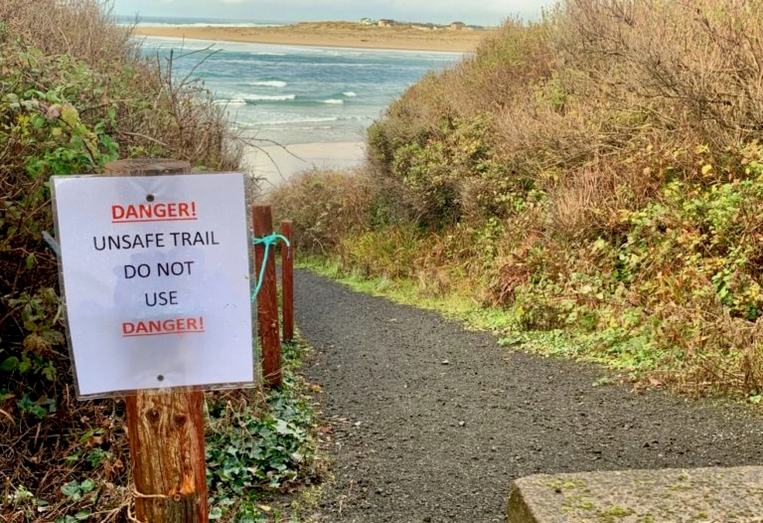| HB 3589 & HB 3506 – Senior Housing Development: People aged 50+ are the fastest-growing group experiencing homelessness in America, and their numbers are estimated to triple by 2030. Oregon faces a deficit of approximately 100,000 affordable rental units, a gap that disproportionately affects older adults living on fixed incomes. Fewer than 10% of housing is aging-ready. HB 3589 and its companion bill HB 3506 ensure that older Oregonians have housing they can afford by establishing the Senior Housing Development Initiative, directing Oregon Housing and Community Services (OHCS) to develop and implement a program that incentivizes housing development for Older Adults and Persons with Disabilities with an allocation of $23.5M for vital senior programs, and $500,000 to establish the “Older Adult Housing Technical Assistance” fund to support housing location, design, development, and the delivery of non-licensed home and community-based services for older adults. HB 3506 provides $3M for home upgrades like ramps or installation of grab bars that will help vulnerable seniors or individuals with disabilities remain in their homes.
HB 3076 & SB 243 – Guns: As a gun owner myself, I’m concerned about new laws that restrict gun ownership among law-abiding people. At the same time, I’m interested in reasonable steps that will protect public safety. I’ve supported some firearms limitations in the past, like limiting sales to domestic abusers. I’ve also opposed some bills like the one requiring the storage of guns even if there are no children in the house.
HB 3076 would have created a state gun dealer licensing program on top of the existing Federal program. I found that duplicative, an added expense for gun owners, and a burden to small businesses. I was planning to vote “no,” but the bill was withdrawn. In its final form, SB 243 bans rapid-fire activators, gives local governments authority over prohibiting concealed carry in government buildings that hold public meetings, and includes language that delays the implementation of Ballot Measure 114 should the courts ultimately uphold that measure.
I saw no need to create automatic weapons with add-on devices. And while I had some concerns, voters passed 114, so clarifying implementation seemed reasonable. If Ballot Measure 114 is upheld by the courts, then making people criminals overnight for owning a high-capacity magazine would not be a good idea. The bill passed on a partisan vote.
HB 3560 – Child Care Facilities Siting: Childcare is a must-have for most American parents, but Oregon’s childcare crisis means that care is frequently unavailable or too expensive for families. Many factors contribute to the lack of capacity, including siting barriers that too often prevent childcare facilities from locating close to where people live and work. HB 3560 expands locations where childcare centers are permitted, making it easier to open and operate facilities in neighborhoods, near schools, parks, and places of worship. By eliminating zoning barriers that keep children at bay, this bill helps Oregon communities to support families and the youngest among us.
HB 2511 – Cell Phones in School: A measure to create phone-free schools statewide failed, dying in the Senate Committee on Education after it passed in the Oregon House. However, Governor Kotek, acting in her capacity as the Superintendent of Public Instruction, responded by issuing an Executive Order that will improve the academic outcomes and the mental health of Oregon’s K-12 students. Specifically, this fall, school districts will be required to create their plans to implement cell phone-free schools by January 1, 2025!
HB 3978 – Primate Research: Questions about the quality or necessity of research done on monkeys at the Oregon National Primate Research Center (ONPRC) continue. These questions came to the forefront in March when the Federal government announced reductions in animal research funding, and OSHU stated they expected a 75% loss of research grants in the coming year. I have been critical of ONPRC in the past, but was particularly concerned that loss of funding would immediately affect the potential to shift to non-primate research models, cost hundreds of jobs, and leave the cost of maintaining 5,000 monkeys to Oregon taxpayers. Said another way, I was concerned about responsible management and government accountability. OSHU needed a plan and didn’t have one.
As a first step, I authored amendments to SB 181. Hearings on that bill attracted hundreds of people and thousands of letters. The bill faced opposition from the University and failed to move forward. I then introduced a new bill that called for OSHU to plan for how to retain or retrain employees and humanely deal with the primate population. Nearly half of the House members of both parties co-sponsored the measure. But the timing was late in session and there was no pathway to passage.
I then prepared a budget note, which was attached to HB 5006. That amendment passed both chambers. A budget note is not statutory, but instead places requirements on agencies that come with the commitment of state money.
The note requires OHSU to study and review the current and future financial viability of the Oregon National Primate Research Center (ONPRC) and submit a report to the House in January 2026. That report will include the projected impact of funding reductions from the National Institutes of Health (NIH) and any other federal sources, confirmation that no state general funds are used for any costs associated with the operation, maintenance, administration, or research activities of the ONPRC and a comprehensive plan for timely closure in the event that ONPRC experiences a reduction exceeding 25%. You can read the entire note here. |










